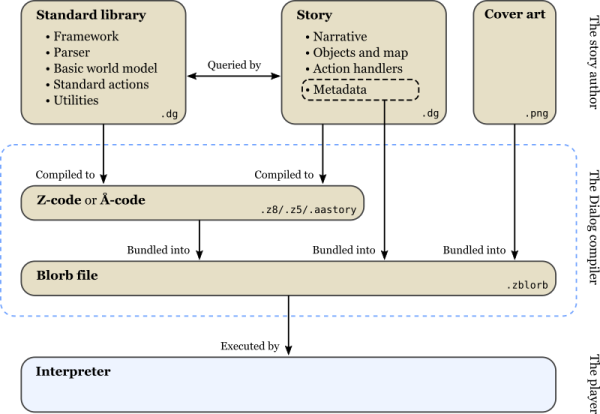During the decades since Infocom released their interactive story game Zork to world-wide acclaim for microcomputers, the genre of interactive fiction (IF) is still immensely popular, with a surprising number of modern IF works targeting Infocom’s original Z-Machine runtime for 8-bit micocomputers. We’ve seen a number of improved runtimes and languages for the platform over the years, with [Linus Åkesson]’s Dialog language a newcomer.
Covering the technical details about the language in this thread at IntFiction, the interesting aspect about this language is that while it has a compiler that compiles it to Z-code for the Z-Machine, [Linus] has also implemented a new runtime, called the ‘Å-Machine‘, since ‘Å’ follows ‘Z’ in the alphabet (if you’re Swedish, that is). This runtime should allow for larger stories and other features that make better use of more resources, while still allowing smaller stories to work on old hardware. Unfortunately the only Å-Machine implementation at this point is written in JavaScript, which is not known to work particularly well on Commodore 64 or even Amiga 500 systems.
As for Dialog itself, its documentation provides a detailed overview of the language’s capabilities, which claims to be inspired by both Inform 7 and Prolog. Its goals are to be easy to follow, with a minimal number of language concepts, and high performance. As the documentation notes, many Z-Machine based stories exist today that are unplayable on vintage hardware due to lack of optimization.
We covered Zork and the Z-Machine a while ago in some detail. We think it’s great to see that there’s still so much interest in the platform. Maybe someone will write an Å-Machine implementation for a Commodore or MSX system one of these days to see how it compares to Infocom’s Z-Machine. Here’s to another few decades of the Zork-legacy.











